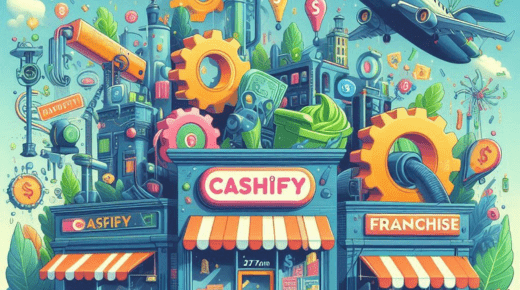1. What is B2B marketing?
Answer: B2B marketing refers to the strategies and tactics used by companies to market their products or services to other businesses, rather than individual consumers. It typically involves more complex sales cycles and decision-making processes.
2. How does B2B marketing differ from B2C marketing?
Answer: B2B marketing targets businesses while B2C marketing targets the individual consumer. B2B sales are normally more relationship oriented, have a longer sales cycle, and may involve multiple decision-makers.
3. What are some common B2B marketing tactics?
Answer: Common tactics are content marketing: blogs, whitepapers, case studies; email marketing; social media marketing-LINKEDIN is particularly powerful; SEO; paid advertising through PPC; ABM; influencer marketing
4. What is Account-Based Marketing (ABM)?
Answer: ABM is a highly targeted strategy in which businesses focus on individual companies (accounts) as markets of one. Instead of casting a wide net, ABM focuses resources on a select number of high-value accounts, customizing the marketing efforts for each.
5. Why is content marketing important in B2B?
Answer: Content marketing helps establish thought leadership, educates potential clients, and builds trust. It allows companies to demonstrate their expertise, engage with decision-makers, and nurture leads over time.
6. What is lead generation in B2B marketing?
Answer: Lead generation is the process of identifying and attracting potential business clients. It involves capturing interest through strategies like webinars, downloadable content, and targeted advertising, followed by nurturing those leads into customers.
7. How does B2B marketing involve SEO?
Answer: SEO allows B2B organizations to gain more visibility on the search engines, thus making it easier for prospects to find them. Optimizing website content, blogs, as well as landing pages help to attract organic traffic and leads.
8. What is the role of social media in B2B marketing?
Answer: B2B marketing can utilize social media channels such as LinkedIn, Twitter, and even YouTube. Companies can use these to share thought leadership content, interact with their audience, and reach out to the decision-makers of the target organizations.
9. How do you measure the effectiveness of a B2B marketing campaign?
Answer: Some of the important KPIs that help track the success of B2B campaigns include lead generation, conversion rates, website traffic, ROI, CAC, and engagement rates.
10. What is a buyer persona in B2B marketing?
Answer: Buyer personas are semi-fictional characters representing your ideal clients based on data and insights. They can guide the crafting of targeted marketing messages, product offerings, and content that can resonate with the decision-makers.
11. What is a sales funnel in B2B marketing?
Answer: The sales funnel refers to the steps a person must go through to make a purchase. These could be awareness, consideration, decision, or post-buying involvement. In B2B markets, the process often involves additional decision-makers.
12. What’s the role of email marketing in B2B?
Answer: Email marketing is crucial in B2B for nurturing leads, sharing valuable content, and keeping prospects engaged. It’s an effective tool for building relationships, promoting offers, and maintaining consistent communication with decision-makers.
13. How can automation improve B2B marketing?
Answer: Marketing automation helps streamline repetitive tasks such as email campaigns, lead nurturing, and follow-ups. It ensures consistent communication and helps manage large volumes of leads more efficiently.
14. What is a Customer Relationship Management (CRM) system?
Answer: A CRM system is the tool for managing and analyzing customer interactions and data throughout the sales lifecycle. In B2B, it tracks leads, manages sales pipelines, and gives great insights into the behavior and preferences of customers.
15. Why is relationship-building important in B2B marketing?
Answer: B2B has a longer sales cycle and more stakeholders involved, so it is a relationship-building activity. Trust and continuous engagement will be necessary for leads to turn into long-term clients and advocates.
16. What is the role of testimonials and case studies in B2B marketing?
Answer: Testimonials and case studies give social proof in the form of success others have had with your product or service. They are often a very influential part of the decision-making process, especially when clients are comparing your solution to the competition.
17. How do partnerships help B2B marketing?
Answer: Strategic partnerships enable businesses to access new markets, leverage complementary products or services, and share marketing resources. Partnerships can also assist in co-branding efforts, cross-promotions, and referral marketing.
18. What is influencer marketing in B2B?
Answer: In B2B, influencer marketing refers to involvement with industry experts or thought leaders who endorse your brand or perhaps other businesses promoting yours. Their authority and network can help increase credibility and reach within a target industry.
19. How does a business use webinars for B2B marketing?
Answer: Webinars are a very effective B2B marketing tool as they enable educating and engaging prospects in real-time. They can display product demos, thought leadership, or industry insights while gathering leads and nurturing relationships.
20. What are the biggest challenges in B2B marketing?
Common challenges include targeting the right audience, managing long and complex sales cycles, differentiation from competitors, customer relationship management, and measuring return on investment. Moreover, maintaining pace with changing technology and trends is a big challenge.
B2B marketing is dynamic. Understanding these core concepts can significantly improve your strategy and help build successful, long-term business relationships.




